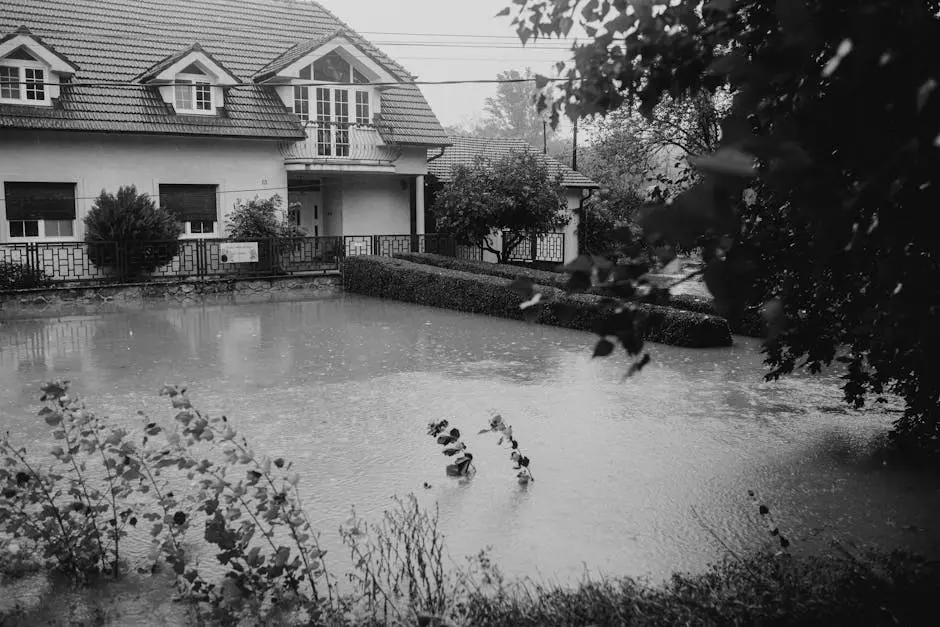Prepare Your Home for Gulf Coast Storms
Living along the Gulf Coast can be both beautiful and challenging, especially during storm season. Preparing your home adequately is crucial to ensuring safety and minimizing damage when storms arrive. In this blog, we’ll explore practical steps you can take to gear up for the stormy season.
Understanding the Risks of Gulf Coast Storms
The Gulf Coast is prone to hurricanes, tropical storms, and heavy rainfall. Recognizing the specific threats of your geographical area can help tailor your preparation and response.
Gulf Coast storms are a powerful reminder of nature’s might. The combination of oceanic warmth and changing wind patterns in this region creates an ideal environment for storm development. This area is one of the most hurricane-prone parts of the United States. Understanding these atmospheric conditions is essential because it helps you grasp the potential severity of a storm. This knowledge can motivate and inform the actions you take in preparing and safeguarding your home.
Strengthening Your Home’s Structure
From reinforcing windows and roofs to securing doors, taking these measures can protect your home from high winds and flying debris.
Investing in hurricane shutters is another wise decision for Gulf Coast residents. These shutters provide an extra layer of protection, reducing the risk of broken glass and water damage. Additionally, secure your garage door as it is often the most vulnerable part of a building during a storm. Consider opting for hurricane-resistant doors or a bracing system to fortify this entry point. Reinforcing the roof with hurricane straps ensures it remains firmly attached to the walls, mitigating the risk of it being lifted by strong winds.
Another critical step lies in the installation and maintenance of a backup generator. Power outages are common during storms and can last for days, which is why having a reliable source of electricity is essential. Make sure your generator is properly serviced and fueled ahead of time, and have a licensed professional install any necessary wiring to ensure safe operation.
Creating an Emergency Supply Kit
An emergency kit is essential for any storm season. Include basic supplies such as food, water, medications, and first aid materials to sustain your family during and after a storm.
Assembling a comprehensive emergency supply kit is crucial. Ensure you have a minimum of three days’ worth of non-perishable food and water for each family member. Canned goods, protein bars, and dried fruits are excellent choices. Don’t forget a manual can opener! In terms of water, FEMA suggests at least one gallon per person per day.
To cater to medical needs, include a well-stocked first aid kit with bandages, antiseptic, tweezers, and over-the-counter medications. If you have prescription medicines, keep an extra supply in your kit. Remember to incorporate sanitation items, such as hand sanitizer, wet wipes, and garbage bags, which are vital for maintaining hygiene when utilities are disrupted.
Developing a Family Communication Plan
Ensure everyone in your household knows the emergency procedures, including how to stay in touch during a storm and meeting points if you get separated.
Communication is key during a storm. Establishing a robust family communication plan ensures everyone knows what to do and whom to contact if circumstances change. Use mobile text messages or social media platforms as they can work when voice calls fail. In addition, select an out-of-town contact who can act as a relay for family members trying to get in touch.
Have pre-determined safe locations both inside and outside your community. Ensure everyone in your household knows the addresses and routes to these places. Regularly update this plan to reflect any changes in contact information, addresses, or procedures, especially after doing evacuation drills.
Safeguarding Important Documents
Keep all vital documents, such as insurance policies, identification, and medical records, safe and accessible in waterproof containers.
Consider digitizing your important documents and storing them on a secure cloud service. By doing so, you ensure access to crucial information even if physical copies are lost or damaged. Another critical measure is having a backup of your electronic copies on a portable device such as a flash drive, which can be kept in a safe deposit box or in another secure, offsite location.
Preparing Your Yard and Exterior
Trim trees and shrubs to prevent limbs from becoming projectiles, and secure outdoor objects like patio furniture and garden tools.
Garden maintenance becomes particularly important before a storm. Larger trees may need professional pruning to ensure stability and reduce the risk of falling. Look for signs of decay or overhanging limbs, which can cause damage during high winds. Additionally, ensure that gutters and drainage systems are clear of debris to prevent waterlogging and possible property damage.
Bring outdoor furniture, toys, and grills inside or secure them firmly to prevent damage from high winds. Secure fences and sheds, and seal any cracks in exterior walls and foundations to block water ingress. Even seemingly minor tasks can help avoid significant damage when harsh weather hits.
Staying Informed and Prepared
Stay informed with reliable weather updates and alerts. Being aware of incoming storms allows you to act swiftly and appropriately.
Put your trust in reputable weather sources such as the National Weather Service for updates. Technology can also play an important role, with smartphone weather apps providing real-time alerts and forecasts customized to your location.
Enlist in local community groups or apps designed for emergency updates and sharing information with neighbors. This community approach can foster a support network, ensuring everyone is informed and prepared. Regularly review and practice your emergency plans to refine them and ensure the swiftest possible response when storms are on the horizon.
Stay Safe and Storm-Ready
Taking the time to prepare your home for Gulf Coast storms can significantly reduce risk and damage. By proactively reinforcing structures, maintaining landscapes, and ensuring emergency plans are in place, you and your family can weather the storm with greater peace of mind. For more comprehensive advice on protecting your home, visit our homepage.

